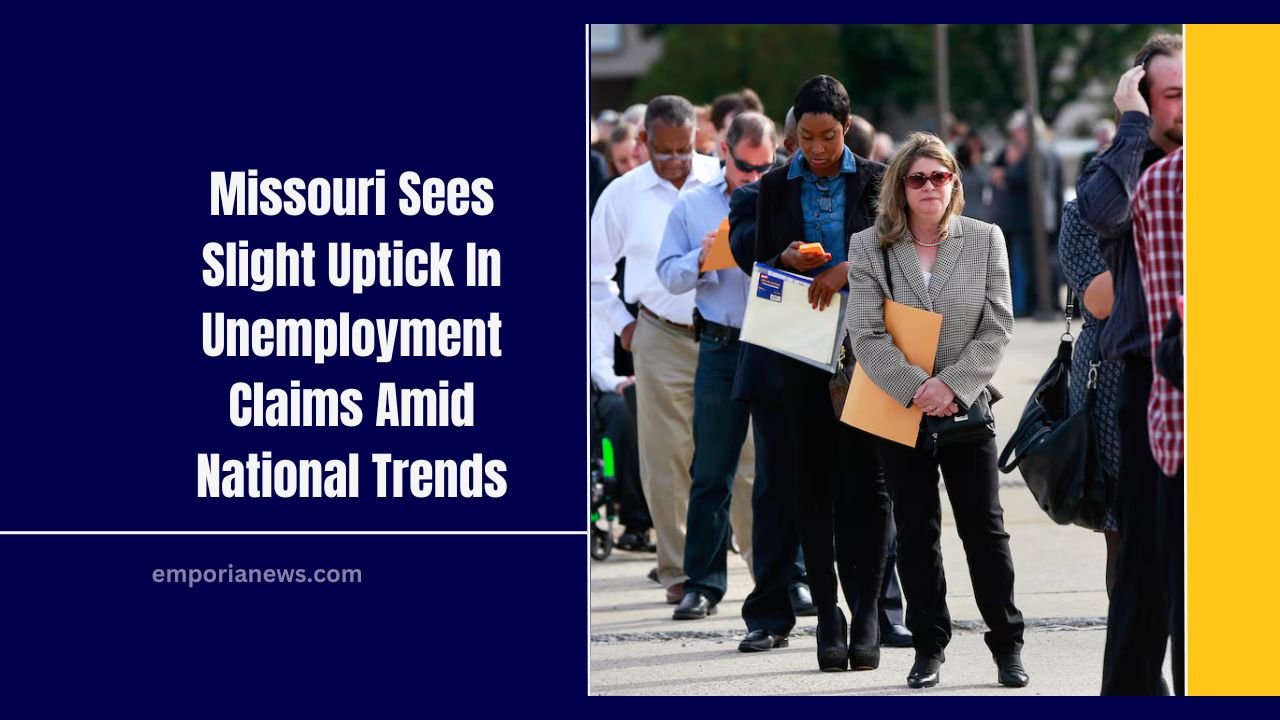In the week ending May 31, 2025, Missouri experienced a marginal increase in initial unemployment claims, reflecting broader national patterns.
According to the U.S. Department of Labor, the state reported 3,750 new jobless claims, up from 3,724 the previous week, marking a 0.7% increase .
Weekly Unemployment Claims in Missouri
| Week Ending | Initial Claims | Week-over-Week Change |
|---|---|---|
| May 10, 2025 | 2,407 | — |
| May 17, 2025 | 2,806 | +16.6% |
| May 24, 2025 | 3,683 | +31.2% |
| May 31, 2025 | 3,750 | +0.7% |
Data Source: Missouri Department of Labor
The data indicates a significant surge in claims during mid-May, followed by a stabilization towards the end of the month.
National Context
Nationally, initial unemployment claims rose to 247,000 for the week ending May 31, an increase of 8,000 from the previous week’s revised level of 239,000 .
The four-week moving average also increased by 4,500 to 235,000, indicating a gradual upward trend.
Among states, Kentucky experienced the largest percentage increase in weekly claims, with a jump of 208.9%, while Nebraska saw the most significant decrease at 50% .
Factors Influencing Missouri’s Unemployment Claims
Several factors may have contributed to the fluctuations in Missouri’s unemployment claims:
- Economic Adjustments: Businesses adapting to post-pandemic economic conditions may have led to workforce reductions.
- Seasonal Employment: The end of seasonal jobs in sectors like agriculture and tourism could have influenced the increase in claims.
- Natural Disasters: The tornado outbreak on May 15–16, 2025, particularly affecting areas like St. Louis, may have disrupted employment, leading to temporary layoffs and increased claims .
Missouri’s Unemployment Rate
As of April 2025, Missouri’s unemployment rate stood at 3.9%, slightly below the national average of 4.2% .
This suggests that, despite recent increases in initial claims, the state’s overall employment situation remains relatively stable.
The slight increase in Missouri’s unemployment claims for the week ending May 31 aligns with national trends, indicating a cautious economic environment.
While the state’s unemployment rate remains below the national average, ongoing monitoring is essential to address potential challenges and support affected workers.




